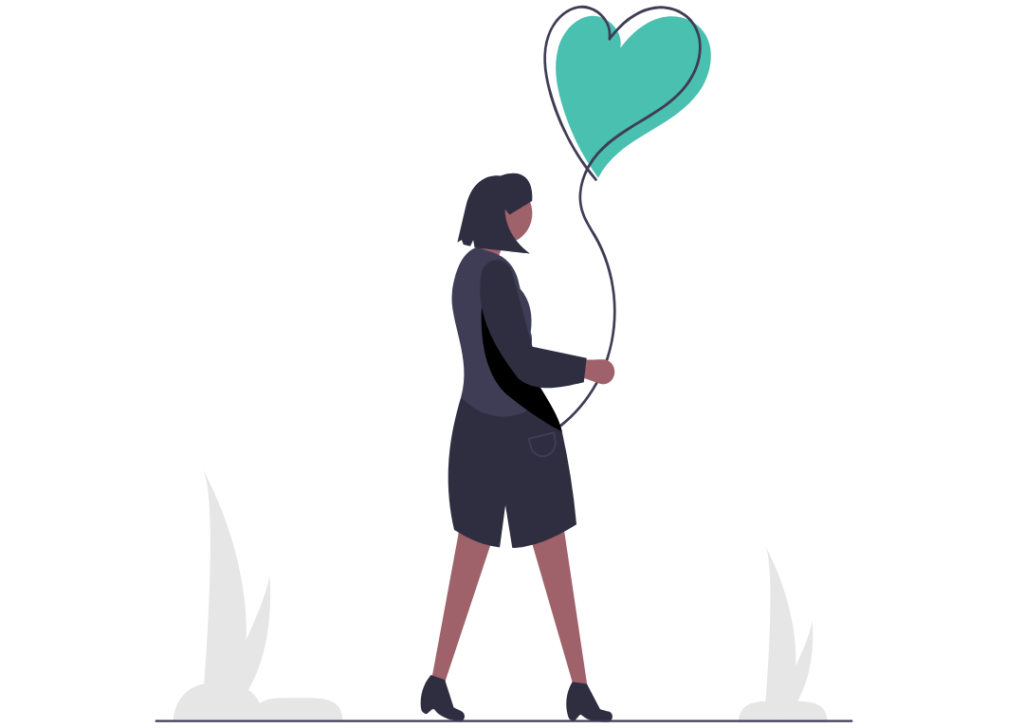
Putting Myself Together Again
Chris was in his mid-50s when his mom was diagnosed with small-cell carcinoma and learned that she had limited time left to live.

Dimeolas put his dream on hold to care for his mom, who had dementia, and his dad who had Alzheimer's and Parkinson's. After his mom passed and his dad's condition grew worse, he realized he would be a full-time caregiver for the foreseeable future. Dimeolas explains the difficulty of putting his dream on hold, how he cares for someone who often refuses help, and his stoic reminders that help him approach each day with compassion. This is Dimeolas's story.
As told to Open Caregiving and lightly edited to enhance readability while preserving the author’s voice.
Hi, my name is Dimeolas. I’m a man from Texas, part of the Baby Boomer generation. I am currently a caregiver for my dad who has Alzheimer’s and Parkinson’s.
I was in school to pursue a dream. I had discovered an area that I truly loved but needed to change schools. It was during this time that it all began. I was sick for a month, had minor surgery, Dad had a stroke, and Mom collapsed.
Work was tough, and I was super stressed. I made it to New Year and lost my job. My dad came home from rehab, and my mom showed signs of dementia.
I decided my dream had to wait and my schooling had to shift. What I had wanted to do would take me out of state and I couldn’t leave my folks by themselves. I started taking over more and more responsibilities while pursuing education for a career change.
A few months later Mom passed, and Dad went down the tubes. This is when I learned about narcissism.
I had always trusted and idolized my dad, but I was never good enough. I always felt that’s just how I was. I had social anxiety and sometimes had severe issues in new places and situations.
As a narcissist my dad thought he was God, that he knew everything and whatever he said was gospel. He would do or say whatever he wanted, but he expected me to do whatever he said to the letter. As I discovered what was going on, and what gaslighting was, it became clear who and what he was. Looking back on my life, I started to understand the many negative effects of his behavior. This was my dad, who I had thought was awesome, but now I saw the truth and felt horrified. But he was still my dad.
His stroke seemed to accelerate his other issues: Alzheimer’s, Parkinson’s, tremors, and trouble walking. Dad’s narcissism meant he thought he knew better than the doctors and healthcare team. He was in denial about his health and that it would get worse. That led to him refusing rehabilitation and physical therapy. He accepted medications for Alzheimer’s and Parkinson’s, though he laughed at both and insisted he never had issues.
Throughout all this I spent so much time researching and trying to understand what’s happening to him so I can help him and save my sanity. I still try to talk about his issues and offer ways to cope, but he refuses everything. He always has to create his own plan, his own shortcut. Even if it doesn’t work or is half as effective as what doctors recommend, he does it his way.
As his condition worsened I realized that I couldn’t leave until he passed. He couldn’t do anything on his own, really. He can’t cook, clean, or go shopping. He is at a point now where his dementia has stolen a lot of him. He has issues using the remote. On bad days, he’s unable to walk without his walker. He has trouble getting up from his chair, yet refuses help. “If I have to, I’ll crawl to bed.” I just wait until he’s tired enough, then we use his wheelchair.
Expect things worse than you can imagine. The occasional hallucinations. Or when I walked into his room, facing his bathroom, and glimpsed him standing and taking a dump on his shower chair.
I learned that his brain wasn’t making the right connections. He often uses the wrong name or description, and I have to interpret.
How draining this is and how much it interferes with being able to concentrate or enjoy life.
No matter what he is doing or saying, no matter how insane it is, he thinks it’s perfectly normal. If I try to help him because I think he’s about to fall, he gets upset and insists he doesn’t need help.
Luckily he has sleep medication, so he generally sleeps in. The morning until the evening news is study and care time. After the news, he goes to sleep. That’s my time. Daytime I do what’s needed for him, take care of errands, and study.
You have to create that time for yourself and learn to segment your time. After you enter your own time, release the rest of the day. It doesn’t exist. Like walking into a sacred grove.
Build time and space for yourself that is healing and nurturing. I read and do 3D artwork, my passion.
Grief Healing Discussion Groups. To be honest, I wouldn’t be here if not for them. They are Angels.
Find a support group, don’t wait. You will need it, trust me. Better to have it in progress than to try finding one in crisis times.
If I could go back, I think as hard as it would have been, I would have gone back to work and gotten some help to come in. I wish we could have gotten him to accept the help that was there, especially physical therapy.
Be gently proactive, engage their mind. But give them a minute to engage as their minds are going slower. My dad sits in his TV chair after breakfast and falls asleep. If I come in and ask him what kind of movie he wants, we’ll browse titles until he finds one he hasn’t seen. Then instead of sleeping, he engages and we watch some movies or lectures. Sometimes gently lead.
You must be compassionate, thoughtful, and stoic. You are human but show no weakness. Only compassion. Read all you can. The more you know, the better you will deal.
Sometimes, you must be a shyster. You must lead, mislead, and trick. You aren’t always dealing with a healthy mind capable of rational decisions. It may feel like caring for an 8-year-old with evil tendencies.
If you don’t take care of yourself, you won’t do any good. Call in help if needed, seek resources, find a support group and cry your eyes out. Take care of yourself. You’re a caregiver, but you don’t have to bear all the burden just because you stepped up.
Lastly, love these people. Even if they’re the biggest pain in the butt, don’t let them go and have regrets later. Sit and watch the birds with your sweet mom. Giggle and ooh and aah at how the wind is swirling the leaves. We always say how we miss those sweet and innocent times. Talk to them, video chat with other relatives and friends. Ask them to tell stories and just listen.
When it gets tough, step back for a minute and say a prayer and remember the good times. Remember that they once changed your diapers. Remember that even though no one in this world will reward you or say what an awesome job you did, all the sacrifices and pain and anguish you went through. I can’t honestly help but think somewhere and somehow this is your choice and is the right, just, and honorable thing to. And that matters. Be good to yourselves and love each other. Cause in the end that’s all we got.
Keep them safe and healthy in the ways you can, help them be happy, and enjoy what time they have left. There will be good days that fill you with hope. There will be bad days that will make you want to leave.
I will not lie, I don’t want this for my life. This isn’t the situation I had planned for. But I will stay the course and see honor done. This is a humbling experience.

Chris was in his mid-50s when his mom was diagnosed with small-cell carcinoma and learned that she had limited time left to live.

Klara was a few years out of college when her seemingly healthy mom was diagnosed with a rare form of cancer beyond treatment.

Just two months after Patrick began volunteering at a hospice, he became a full-time caregiver for his partner’s dad.